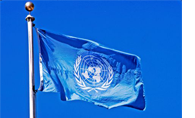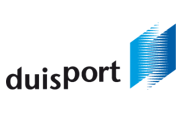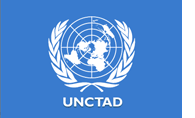
|
Brexit state of play: Problems in getting Britain out of the European Union
The British have never felt European, except in the sense that they are mostly white and Christian. Even the UK's official religion, the Church of England, is less Protestant than it is simply un-Catholic, sharing virtually the same liturgy and ceremonies except that allegiance to Rome.
Britain only joined Europe in 1973 when it was called it’s the European Economic Community (EEC). It was accepted as a customs union - that's all. Only hotheads said it was really a scheme to create a new country and turn Britain into a province.
To be fair, there were anti-monarchists, disloyalists, who favoured such outcomes as a societal direction. A growing number of state-paid people from top civil servants to welfare recipients liked the idea too. In the short term at least it meant easy money. Big business, having become more institutional than entrepreneurial, was fearful of poor returns any disruption might cause - so preferred the devil they knew and not the Brexit devil about which they knew nothing.
Powerful as these constituencies were and are, they did not constitute a majority. As the European Commission, the unelected cabinet of the European Union, discovered in their "Eurobarometer" opinion poll, a full 64 per cent of British respondents did not see themselves as European at all, but exclusively British. Only 31 per cent saw themselves as primarily British and secondarily European. 
|

|
Front running scrubbers and LNG leave low sulphur fuel behind as EU's air pollution solution
A big problem facing European shipping today is how to cope with the near elimination of sulphur oxide (SOx) pollution from ships in 2020 if UN mandated Emission Control Areas (ECA) rules take effect covering the English Channel, North Sea and Baltic Sea - as well as the east and west coasts, and main inland waterways of Canada and the United States.
As it stands, there are three options: 1) install scrubbers to sanitise heavy fuel oil (HFO), 2) burn virtually sulphur-free liquefied natural gas (LNG) or 3) use marine diesel oil (MDO) which dilutes the bunker into an acceptable blend.
While MDO, also known as MGO (marine gas oil) is viewed as more of a stopgap than a solution, it may thrive in Asia, Latin American and Africa where regulators are less stringent.
Shipping confined to the ECA zone or voyaging between control area in the North Atlantic trades feared the first UN 3.5 per cent SOx limit when it kicked in 2012 on the high seas cutting sulphur content back from an allowable 4.5 per cent before that. While with a bit of tweaking on fuel blends they could live with that, but ferry and short sea operators began to fear for their livelihoods when bureaucrats planned to saddle them with a 0.10 per cent limit in 2015.
|

|
German inland port of Duisburg sees itself as Sino-European rail hub
Since 2011, a rail network spanning more than 10,000 kilometres has linked Chongqing, the world’s largest industrial metropolis of almost 30 million people and Germany's Duisburg, the world’s largest inland port in the heart of central Europe. This route has proven itself to be a precursor for long-term growth in the exchange of goods between Asia and Europe. In China, the land bridge is celebrated as “the new Silk Road”.
"Behind this concept lies a comprehensive strategy with the name of ‘One Belt, One Road’. Since 2013, it has been connecting destinations for the establishment of intercontinental infrastructure between Europe and China, and refers to the area of the historic Silk Road," said Duisport Group CEO Erich Staake.
Writing in London's CEO magazine, Mr Staake said the project comprises both land and sea routes, and outlines six corridors that are to be developed gradually. Financing is provided through the Asian Infrastructure Investment Bank and the Silk Road Fund, a Chinese government investment fund to foster investment in countries along the route of the One Belt, One Road initiative primarily covering Eurasia.
The total cost of the project is estimated at US$1.1 trillion, making it is the world’s most ambitious and expensive infrastructure project since the US Marshall Plan after World War II, said Mr Staake.
|

|
Has the time come for turnarounds in the Asia-Europe trade to happen in the Med?
For old ports in southern Europe - Barcelona, Genoa, Venice, Spezia and others in the Adriatic and Aegean, the opening of a southern gateway into Europe is about to dawn.
What has been long dismissed as a pipedream by seasoned cynics of the north, who can see why this cannot be remains the big hope if not an expectation of European southern ports.
What Northern Range ports fail to appreciate is that world shipping has changed so profoundly ashore and afloat that old southern dreams are making a comeback just as ancient northern verities have been eroded by new realities.
One new believer is the United Nations Conference for Trade and Development (UNCTAD), whose latest annual report to the UN General Assembly sees a new dawn for southern European ports, and darker days ahead of ports of the Northern Range.
|
|
|
|